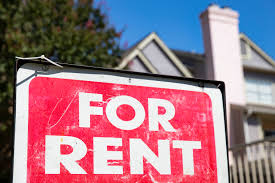Rent in Jacksonville still going up faster than the national average (Courtesy of the Jacksonville Business Journal) — Rent increases are slowing nationally, but Jacksonville is continuing to see big jumps.
The median asking price in the metro area climbed to $1,653 in January, a 7.5% increase from a year ago, according to a report from real estate brokerage Redfin, which looked at data from more than 20,000 apartment buildings across the country.
The median U.S. asking rent rose 2.4% year over year to $1,942 in January — the smallest increase since May 2021 and the lowest level in nearly a year. That’s roughly one-sixth the pace of January 2022, when rents were up 15.6% from a year earlier, according to Redfin.
Jacksonville’s increase was the ninth largest in the country, but far below those with the steepest increases: Raleigh, North Carolina, saw rents jump 22.5% year over year, while rents in Cleveland grew by 17.5% and in Indianapolis by 14.2%. The rest of the top 10 increasing cities was filled out by Charlotte, North Carolina (14.2%); Nashville, Tennessee (9.8%); Kansas City, Missouri (8.8%); Louisville (8.2%); Milwaukee (7.7%); and Providence, Rhode Island (7.3%).
Eleven major metro areas saw rents decrease year over year, led by a 6.7% drop in Phoenix and a 6.3% drop in Oklahoma City.
The report only looked at new leases — so it doesn’t reflect what renters are paying now but what landlords are asking new renters to pay.
In the report, Redfin said demand has slowed due to still-high costs (rents remain 22.5% higher than they were in January 2020), inflation, widespread economic uncertainty and slowing household formation. Rental supply has grown due to an influx of construction in recent years, as well as a recent increase in the number of people opting to rent out their homes instead of sell.
“We’re watching closely to see whether rents start falling year over year. That would be a welcome relief for renters because it hasn’t happened since the onset of the pandemic,” Redfin Chief Economist Daryl Fairweather said in a statement. “If rents do start falling on a year-over-year basis, it will mean that renters have more room to negotiate. It may also prompt more landlords to sell their properties because they’re no longer getting a good return on their investment.”
Photo courtesy of Investopedia

